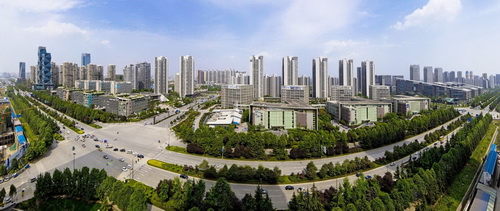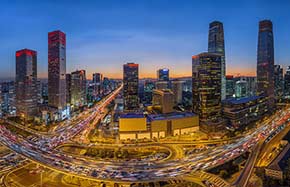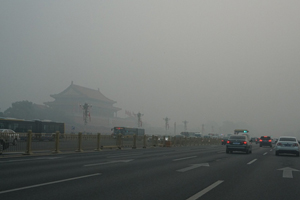Outside experience fine-tunes new FTZ
(chinadaily.com.cn) Updated: 2017-04-28 09:34
 |
|
Chengdu takes a series of measures to promote trade facilitation in the construction of FTZ. |
"We have planned different functions for different areas in Chengdu," said an official from the Chengdu Commission of Commerce. "We will develop Sichuan and Chengdu in featured ways in FTZ construction processes. We will make efforts to promote innovation and reform through pilot programs, and we expect to gain experience that can be applied in the rest of the country."
In 2014, Chengdu started to apply experience from the Shanghai FTZ's development in the Bonded Area of Chengdu Hi-Tech Industrial Development Zone and Chengdu Airport Bonded Logistics Center. A report from PwC, one of the three parties that support Chengdu FTZ development, showed that Chengdu performed well in real practices.
In addition to applying existing experience, Chengdu explored development models that might better fit local conditions.
Xu Wen, PwC's business supervisor in Chengdu, commented positively on Chengdu’s endeavors at the FTZ’s establishment news conference last September.
"Based on Shanghai’s experiences, Chengdu has achieved good results in developing an international, market-oriented and legal business environment by promoting administrative streamlining, delegating power, strengthening supervision and improving government services," Xu said.
Xu said Chengdu has promoted the development of oversight mechanisms to transform government functions. Chengdu also developed a social credit system, built an information sharing platform, promoted business registration reforms and encouraged organizations participating in market supervision to improve the region’s business environment.
Chengdu not only cut unnecessary administrative procedures to provide more convenience to foreign investors but also set up supporting policies to encourage local businesses seeking opportunities in foreign markets.
According to Xu, the city has made great efforts to advance trade facilitation. For instance, it developed a hierarchical risk management system to improve clearance efficiency in customs.
Chengdu's domestic and foreign maintenance service industry also reported strong growth with strong support from the government. Hongfujin Precision Electronics (Chengdu) Co, a subsidiary of Taiwan Foxconn, has obtained approvals to repair iPads from global market. In previous years, only locally made iPads were allowed to be repaired.
A large aircraft engine maintenance and repairing base is under construction. The first phase of the project will make Chengdu capable of repairing 300 aircraft engines per year. The capacity will be increased to 600 units once the second phase is completed.
Looking ahead, Chengdu plans to develop different functions in different areas to support its FTZ development. For instance, it plans to develop aircraft leasing and financial services in the Shuangliu area.
Tianfu New Area, known for its beautiful environment, will take measures to seize opportunities in the exhibition and conference industry. It will also promote the service industry’s upgrading by combining conference with tourism. The Chengdu Science City, a technology hub in the region, will promote technology trade in new energy and biopharmaceuticals. There will also be an intellectual property court in Tianfu to accelerate the city’s development in IP right protection.
The Chengdu Hi-Tech Industrial Development Zone will focus on supporting innovation of trade and business models in various fields, including online education and crowdsourcing, and actively participate in international regulation of the trade in services sector to become more globally competitive.
The Qingbaijiang region will focus on developing Chengdu-Europe Express Rail-related services to support FTZ’s trading activities.
- Tianzhou 1 completes historic refueling of orbiting lab
- Anti-poverty effort wins world's plaudits
- Anti-graft agency hunts 946 fugitives
- Peng says education for girls is important
- Smog battle fortified by robust plan
- Ministries cooperate to protect lawyers' rights
- 'Press on' with economic shift
- Ministry to oversee cleanup of dump sites in Hebei, Tianjin
- Processing of patents speeds up
- Xi, Trump discuss Korean situation







